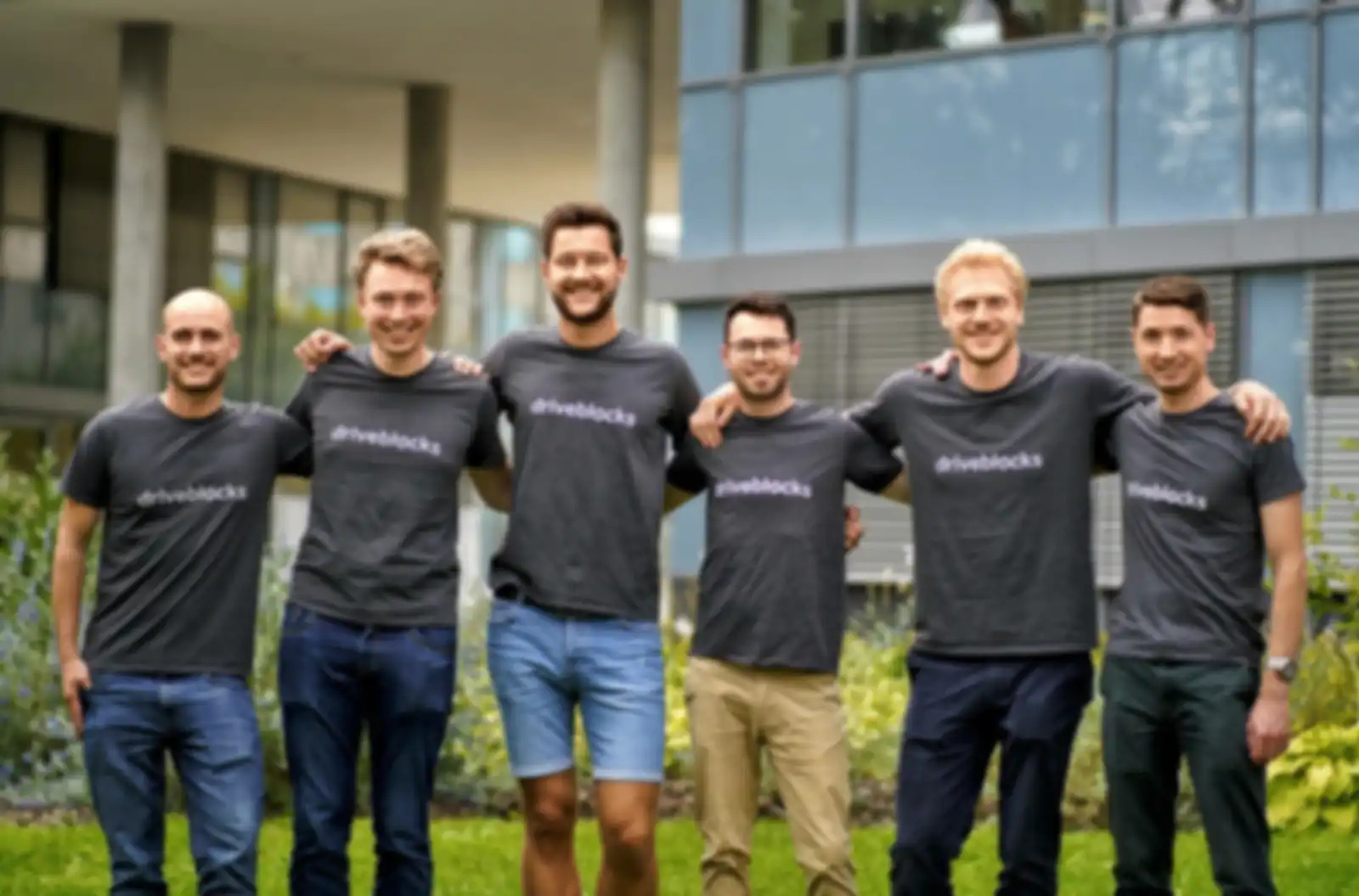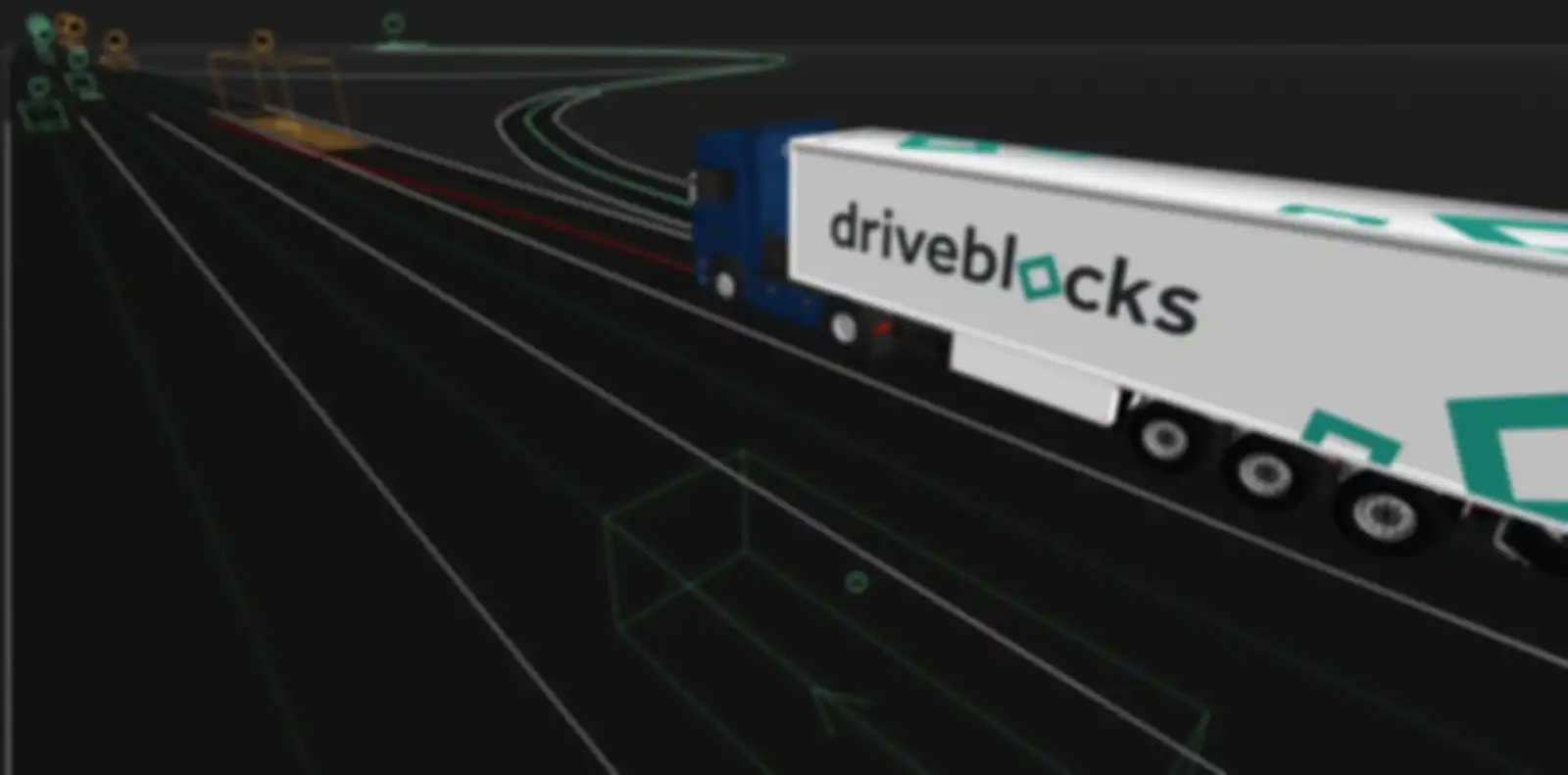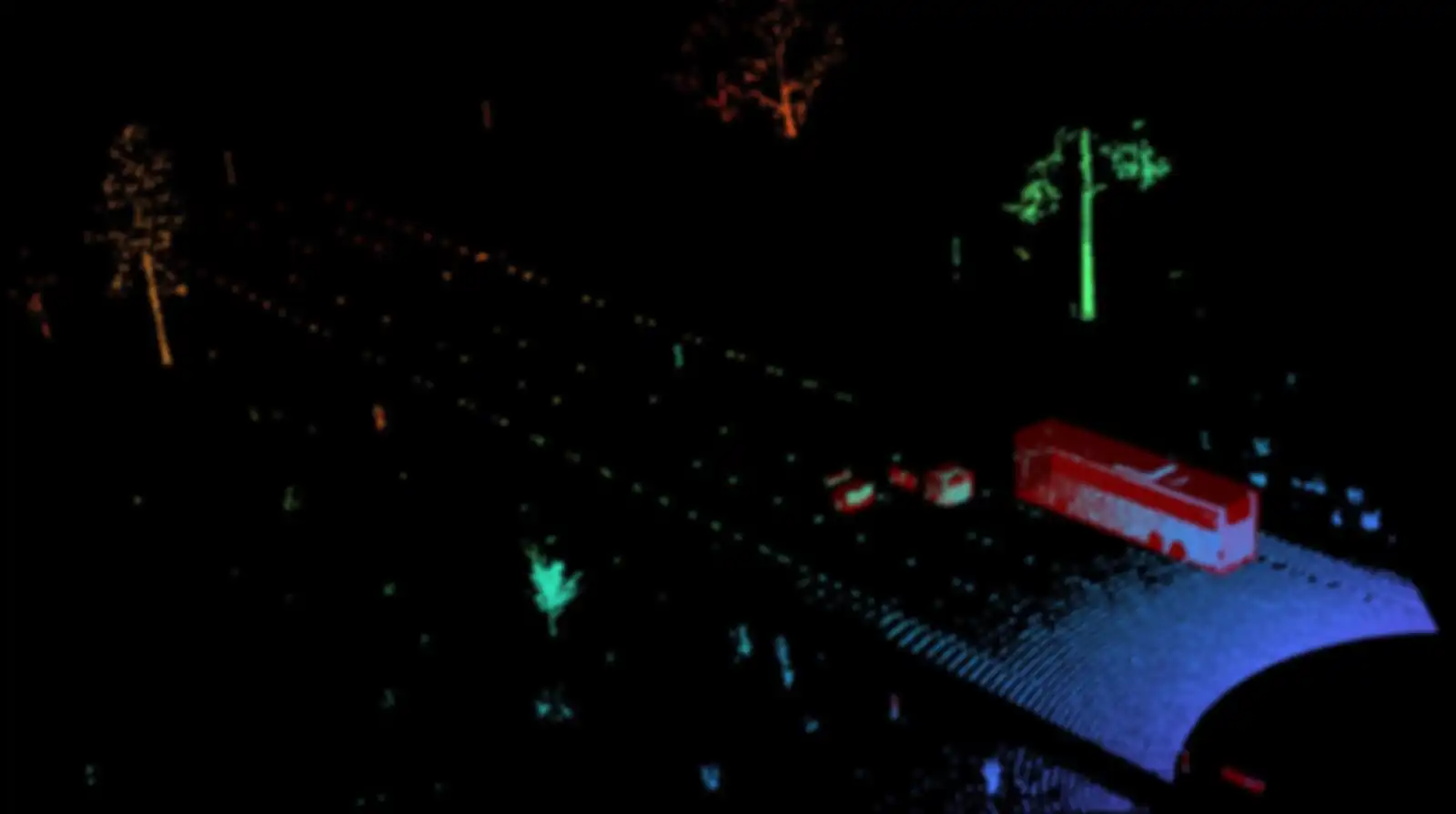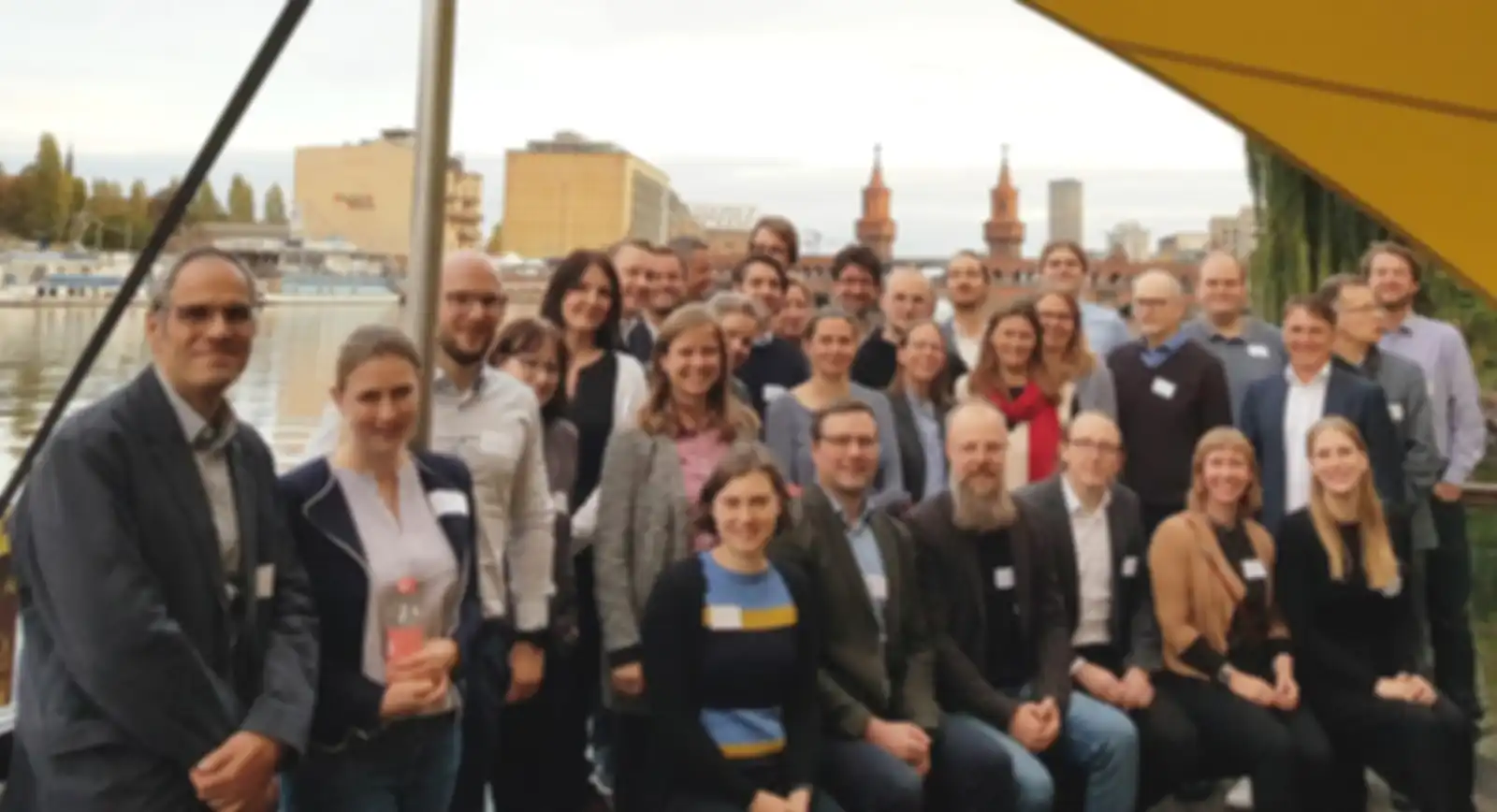9/7/2022
Developing safe software at full throttle
driveblocks wants to create open ecosystem in autonomous driving
Algorithms researched at university take decades to reach real-world applications? Alexander Wischnewski, Stephan Matz, Tim Stahl, Felix Nobis, Leonhard Hermansdorfer and Thomas Herrmann, who met in 2017 at the Chair of Automotive Engineering at TU München, can put this prejudice to rest: they can literally look back on rapid practical tests of their research. Under the supervision of Prof. Markus Lienkamp, they developed software for autonomous driving at speeds of up to 270 kilometers per hour and won the Indy Autonomous Challenge, a car race for driverless vehicles between international universities in Indianapolis in October 2021. During that time, the doctoral students, each specializing in different fields, explored every angle of autonomous driving - and realized what they desperately wanted to do better.

Why we're getting into this 'right now'? Because we expect our approach to add tremendous value.
Autonomous driving is on everyone's lips, a huge topic for the automotive industry and one of the key technologies for the mobility revolution as well. It can save cost, counteract the labor shortage in the transport sector and, in the best case scenario, should mean fewer traffic jams and accidents in the future, by balancing rush hour traffic and other transport processes. Despite impressive progress in recent years, the Munich-based team believes the technology will still need significant development resources before it can be used in all vehicle classes and applications. That's why they jointly founded driveblocks in December 2021, aiming to push their autonomous driving technology a giant leap forward from university into the business world. The company focuses on commercial vehicles that are used, for example, in hub-to-hub logistics, in the mining sector or in container terminals.
The six young founders aim to develop a flexible, modular software solution for autonomous driving, driveblocks
stands for many small building blocks. We develop software, not vehicles,
emphasizes CEO Alexander Wischnewski, an expert in system architecture in autonomous vehicles and responsible for the technical strategy, and are thus approaching autonomous driving from a completely new direction.
Similar to smartphone apps, in the future it will be possible to flexibly assemble the required software components from the areas of object recognition, decision-making and driving functions. Achieving the necessary safety standards will then require precisely defined interfaces and hundreds of millions of kilometers of testing in a photorealistic simulation environment. Final validation continues to take place with real vehicles.
Collaboration is the magic word at driveblocks. We want to create an open ecosystem that enables vehicle manufacturers, specialized companies, but also universities to jointly further develop this technology. The foundation of this ecosystem will be made available and generally accessible via open source,
describes Stephan Matz, the second managing director in the team, responsible for the commercialization of the product. It is expensive and a long road to develop the functionality of autonomous driving, make it robust and complete the safety validation. Only a joint effort between specialized companies and universities makes sustainable development and thus long-term added value for society possible.

Ideally, the modular principle can become the center of an entirely new industry - comparable to today's automotive industry.
Germany and Europe are pioneers in defining high safety standards in the field of autonomous driving - these can best be achieved when the knowledge of many experts from different disciplines is combined. To achieve this, the dynamic driveblocks team wants to bring its knowledge of artificial intelligence as well as complex algorithms into application and facilitate the continuous improvement process of the technology. To approach these goals, Wischnewski, Matz and their co-founders are now analyzing the current open source ecosystem and the challenges in the automotive sector on behalf of SPRIND and are investigating, also together with certification bodies, how their idea could work in the future.
It is important to us that we approach autonomous driving gradually. Our goal is not to completely automate commercial vehicles right away,
says Stephan Matz enthusiastically. We are guided by what is technically feasible at the moment and can add modules at any time. If, for the time being, shorter distances, for example on company yards for loading, no longer have to be taken over by drivers, that's a sensible first step.
This is also reflected by the numerous haulage companies enthusiastic about driveblocks, which are having increasing difficulties finding sufficient workers.
On the racetrack, driveblocks is not returning. For us, this time was incredibly instructive and it makes our technology safer on the road - precisely because it involved the extremes: high speed and insanely short reaction times,
Alexander Wischnewski recalls fondly. We're taking all that knowledge with us and now we really want to make a difference.
More about driveblocks: driveblocks.ai




